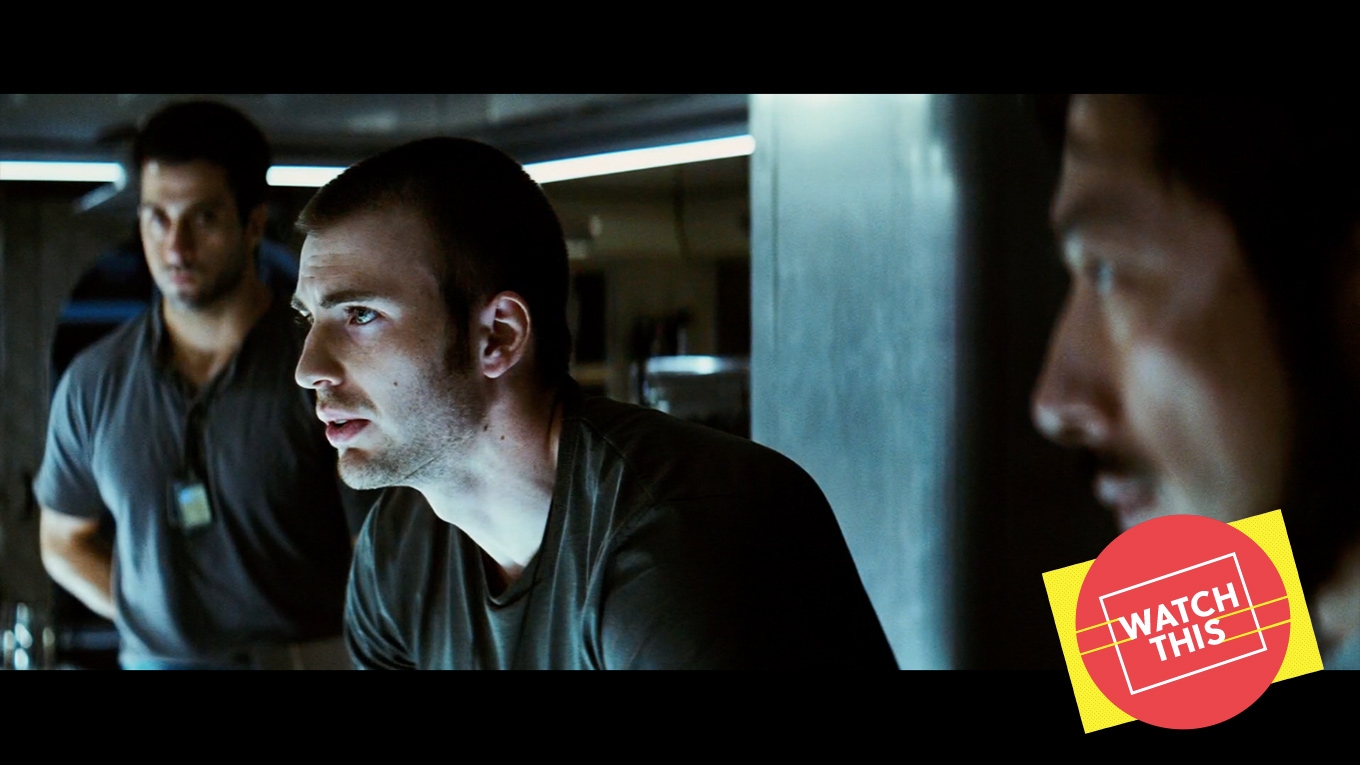Danny Boyle’s Sunshine is a blindingly human space odyssey

Watch This offers movie recommendations inspired by new releases, premieres, current events, or occasionally just our own inscrutable whims. This week: With Voyagers now in theaters and Stowaway on Netflix next week, we’re looking to the stars for five days of space movies.
Sunshine (2007)
It’s a joke or a tragedy or maybe a little of both that HAL 9000, the neurotic AI antagonist of 2001: A Space Odyssey, is more human than the humans he’s eventually pitted against. Dave, the machine’s adversary, is a remote representative of our species, and his chilly scientific remove set the tone for a whole genre of men and women floating across the great black canvas of the cosmos. Sunshine, like nearly every Hollywood voyage into the void from the last half century, owes a debt of visual and conceptual influence to Stanley Kubrick’s unforgettable vision, including the presence, naturally, of a PA-system computer companion. Yet in sharp contrast to its famous predecessor, this is a distinctly warm-blooded space odyssey—one animated by the fascinating tension between director Danny Boyle’s enduring interest in everything messy/beautiful about our kind and the ruthless fatalism of frequent collaborator Alex Garland’s screenplay.
Sunshine has the spooky veneer and technobabble of so-called hard science fiction, but it’s really more of a rip-roaring, nuts-and-bolts thriller with some intriguing philosophical baggage. The film is set almost entirely aboard Icarus, a spacecraft bound for the sun. The crew (played by an ace ensemble that includes Cillian Murphy, Michelle Yeoh, Rose Byrne, Chris Evans, and Hiroyuki Sanada) has been tasked with restarting the dying celestial body by launching a giant bomb into it—“creating a star within a star.” Their mission unfolds as a daisy chain of breathless cliffhangers. Just about all of them are the products of human error; the decision to drift off course and rendezvous with the first ship sent to accomplish their task creates a domino effect of miscalculations, moral dilemmas, daunting obstacles, and impossible decisions.
At its glowing core, Sunshine is about that age-old squaring of personal against collective need. Each of the astronauts is forced to reckon with a staggering paradox of consequentiality: The future of mankind rests on their shoulders, yet their individual lives are fundamentally expendable, entirely subordinate to the success of the mission. Dwindling oxygen and a dearth of space suits create hierarchical crises, forcing constant tough conversations about who’s more valuable. Rarely does big-boom American sci-fi confront its characters so forcefully with their own mortality and the imperative of sacrifice; by the midway mark, the stakes are entirely on a whole-species scale.
Time has scarcely dimmed Sunshine’s sensorial pleasures: It remains a gleaming, jaw-dropping spectacle, with effects that have aged gracefully and some truly striking big-screen imagery, like a shot of fragile bodies hurtling through space from one open airlock to another. At times, the film leaves you as awestruck as ship psychiatrist Searle (Cliff Curtis), whose growing obsession with witnessing the full, blinding splendor of the sun portends an inevitable tilt into space madness. The score, too, is remarkable—even those who have never docked with this vessel might recognize its most stirring theme, now a staple of trailers looking to invest a forthcoming blockbuster with the promise of emotional power. Boyle, famous for “Lust For Life” chases and the influentially sprinting dead (he even brought a caffeinated restlessness to the plight of a man trapped under a rock), fruitfully tempers his need for speed: This is the best of both words, the director slowing his roll for moments of meditative grandeur while also bringing some of his signature urgency to the genre.
About the ending. Even Sunshine’s most fervent defenders tend to grant that Garland takes the film in a less cerebral direction—what looks for a while like a brainy sci-fi monolith becomes an interstellar slasher at the finish line. Yet this feverish finale, in which Boyle ultimately decides to just go ahead and do his version of Alien, too, is plenty scary and exciting and ravishing, the mad dashes down corridors abstracted into a nightmarish blur. Beyond that, it scarcely breaks with the overarching concerns: A violent standoff at the center of the galaxy is the film’s most primal expression of the war between epic selflessness and self-serving pursuits. Has there ever been a more solipsistic sentiment than a desire to be “the last man alone with God?” As mission-sabotaging priorities go, that eclipses even HAL’s all-too-human motives.
Availability: Sunshine is available to rent or purchase digitally from Amazon, Google Play, Apple, YouTube, Fandango Now, Redbox, DirecTV, and VUDU.